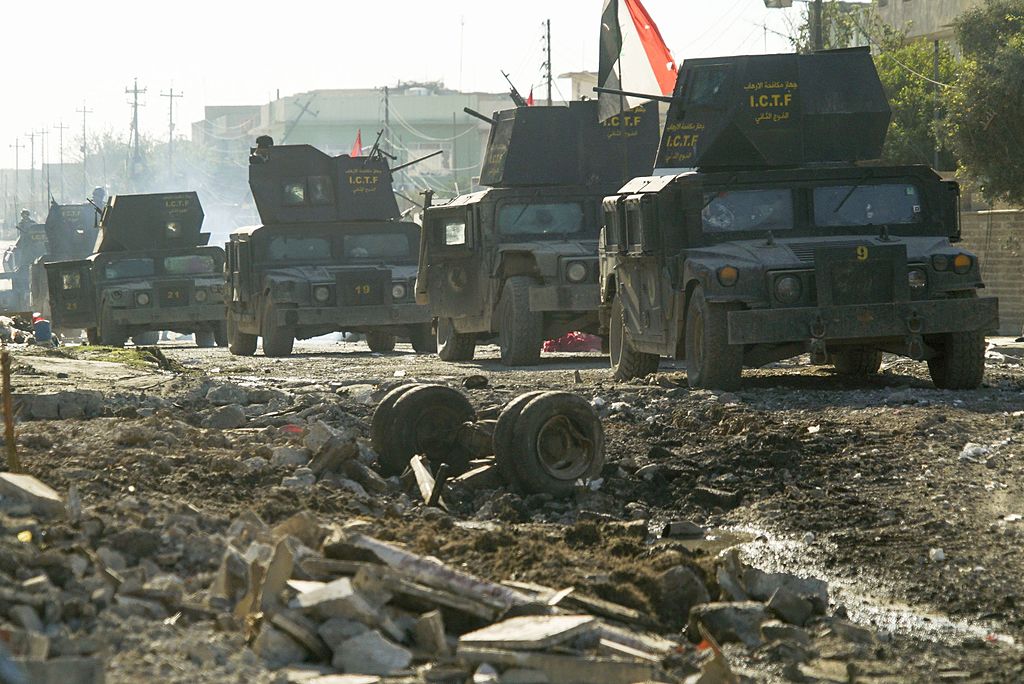 By Mstyslav Chernov / Wikimedia Commons
By Mstyslav Chernov / Wikimedia Commons
Iraq’s “Golden Division”: Insights from Buzzfeed’s embedded journalists
In Mosul, Iraq’s second largest city, a group of elite Iraqi special forces has been at the vanguard of the operation to retake the city from the Islamic State. Iraq’s 2nd Battalion, 1st ISOF Brigade, commonly known as the “Golden Division,” was originally trained by American special operations units to undertake the type of high-value counterterrorism operations typically carried out by the U.S. Navy’s SEAL Team Six or the U.S. Army’s Delta Force. The campaign to oust the Islamic State from Iraq has forced the Golden Division to abandon those missions in favor of large-scale conventional combat operations in predominantly urban environments.
Buzzfeed’s Mike Giglio and photographer Warzer Jaff recently published an in-depth account of the Golden Division’s fight against the Islamic State, while embedded with the group during the advance on Mosul. Following the Iraqi Army’s rapid retreat toward Baghdad, the 1st ISOF Brigade became a critical last line of defense. In its efforts to retake the offensive, the Golden Division has been forced to adopt conventional infantry tactics‑-suffering heavy casualties in the process:
The special forces were forced to fill the void left by the army’s retreat. They found themselves fighting like infantry soldiers. No longer able to practice the kind of pre-mission intelligence and planning they had been trained to carry out, fighters were dying by the dozen.
Consequences
Placing Iraq’s elite counterterrorism forces at the tip of the spear against the Islamic State has led to the loss of a good number of its most highly trained and best equipped soldiers. Special forces units like the Golden Division can be highly effective at the asymmetric missions with which they are typically tasked; however, they are not a suitable replacement for regular infantry units. The article quotes David M. Witty, a former U.S. Army Green Beret and Iraqi special forces trainer, as saying:
What Iraq is missing is infantry to do this dirty work. ISOF are being used in that role now, and it’s got to be bleeding them dry. When a very elite unit like that takes those kinds of losses — you know some of those guys have been training with the US since 2003 — they can’t really be replaced. And they’re the ones that need to secure the peace.
After the Islamic State’s remaining fighters have returned underground, the need for counterterrorism forces in Iraq will be at its highest. To secure the peace, Baghdad will need to target Islamic State leadership or support cells that remain in the country. Without highly-trained forces specifically intended to carry out these missions, the government may not be able to successfully do so.
The potential inability of the Iraqi government to restore stability in the post-conflict phase may require prolonged American military involvement. Without sufficient Iraqi counterterrorism forces in place, the United States would be forced to rely on its own special operations units to carry out raids to eliminate the remnants of the Islamic State within Iraq. Beyond that, the United States is likely to incur substantial financial costs should it undertake efforts to replenish Iraq’s special forces units.
As the campaign in Iraq comes to a climax, American and Iraqi leadership officials need to be concerned with the post-conflict environment. Without highly-trained Iraqi special forces units in place to restore government control in the wake of the Islamic State, there is a very real risk of continuing conflict and instability.
The full article can be found here.





